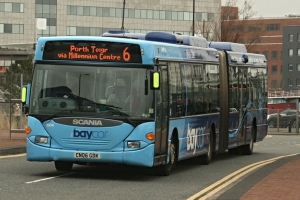Support migrant centric journalism today and donate

 • Media Center » Video Immigration News
• Media Center » Video Immigration News
On 05 December 2007, UK Home Secretary Jacqui Smith outlined the forthcoming new immigration system for the United Kingdom during a speech to the London School of Economics. She touched on the new immigration rules coming next year, including English requirementsfor prospective migrants, mandatory ID cards for foreign nationals living in the UK, stricter rules on bringing foreign spouses to the country, and details of the new points based system.
Migrants Benefit the UK
She opened the speech by praising the contribution that migrants have made to the UK throughout its history.
"Our history, both ancient and modern, is rich with examples of how economic growth has been supported and even secured through migrant labor. Today, migrant workers are filling skills shortages and meeting labor market demands," Smith said. "They're supporting public services by working in the [National Health Service]. They're creating new businesses and jobs. And the net fiscal contribution they're making is comparatively stronger than those born in the UK."
According to the Home Secretary, if migration to the UK suddenly stopped, the negative effects would be immediate.
"Last year, immigration contributed roughly six billion pounds to [Gross Domestic Product] growth," Smith said. "If net migration ceased, our growth rate would be cut by .5 percent over the next twoyears."
Balancing Britain's Needs
However, she said the government must weigh the needs formigration against the need to control Britain's border, stating that the UK needs to make sure that only the people Britain needs can get in. She said that instead of the estimated 80 immigration routes that currently exist to enter the UK, there will be a single points based immigration system.
"This will start to go live in the next few months, setting out explicitly the skills we want to attract to the UK and the conditions that people will have to meet before they can come," Smith said. "Five levels -- or 'tiers' -- will cover the different categories of skillsfor potential immigrants from beyond the [European Economic Area], with clear criteria set for who we need to come here and who we don't," she added.
She explained that Tier 1 would be for highly skilled migrants whose qualities and experience allow them to set up new businesses or work in highly specialized fields. Tier 1 will replace, among others, the Highly Skilled Migrant Programme (HSMP)
"Today I'm publishing the detailed statement of intent on how Tier 1will work once it starts in March next year," she said. "It will replace eight immigration routes for entrepreneurs and businessleaders. It means that to qualify for entry, all applicants will have to score points based on their skills, qualifications, proficiency in English, financial status, and compliance with the law."
She went on to describe the other four tiers, surprisingly stating that the third tier, designed for low-skilled workers, would be suspended. Previous reports in the press indicated that it would actually be easier to come to the UK as a low-skilled worker under the new points based system, mainly because of the need for labor for the upcoming 2012 Olympics.
"Tier 2 will be for skilled workers to fill jobs where there's a shortage of resident workers in areas like engineering, IT, and education," she said. "Tier 3 covers low-skilled workers -- and the flexibility of the system is shown by the fact that we've already taken the decision to suspend this level because we believe the EU migration is providing the workers that our labor market needs in this respect. Tier 4 will be for international students who bring such benefits to the UK, and Tier 5 for temporary workers."
Current immigration schemes such as the Seasonal Agricultural Workers Scheme (SAWS) and the Sectors Based Scheme (SBS) will get the axe when Tier 3 goes live. The agricultural industry in the UK is not happy about this because they feel that the European Union can't provide enough workers to fill their needs.
The recently launched International Graduates Scheme will be replaced by Tier 4.
Smith stated that an independent Migration Advisory Committee would be assisting the government in identifying specific sectors and occupations where labor shortages exist.
"The advice...will help us to decide which skills should be given points and which should not so that we can control labor migration effectively," she said.
English Proficiency
Migrants coming under Tiers 1 & 2 will be required to show proficiencyin English. Currently, migrants are only required to show knowledge of English when applying for permanent residence or citizenship.
"This isn't a demand made on spurious grounds," she said. "We recognize the value of migrants being able to make their way in the UK, to integrate into local communities, to protect themselves from exploitation. Fluency in English increases somebody's chances of being employed by a fifth, and has a similar impact on earnings."
She also said that she is proposing for international spouses to be required to show a basic grasp of the language if they intend to settle in the UK.
"Last year, nearly 50,000 people were admitted to the UK as a spouse or fiancé," Smith sated. "I think it's fair that we should now set out our expectation that they're able to speak English before they come here."
Criticism
During the Questions and Answer period following the speech, some tough questions were fielded.
Philip Legrain, journalist and author of 'Immigrants: Your CountryNeeds Them', had some hard hitting questions in regards to the new immigration rules.
"Under Tier 1, you need to have a university degree, which means that you would have turned away a young Bill Gates," Legrain said. "It means if [British multi-billionaire entrepreneur] Richard Branson had been born abroad, you wouldn't have let him in. It means that Barack Obama's father -- being a Kenyan goat herder -- would not have been let in. Would that not have been a big loss to Britain?"
Smith responded by stating that she doesn't believe its possible to create a migration system in which people can have confidence and manages to avoid prejudice against migrants, without there also being a confidence that the approach the government takes in deciding who comes to the UK is "robust". She also said that the investor component to the Tier 1 category would allow people like Bill Gates to make important contributions to the UK. She had no response about Obama's father.
He also had criticism for the Tier 2 system, specifically the role of the Migraton Advisory Committee.
"On the matter of Tier 2, how on Earth do you expect a committee of wise men to determine where shortages in the economy exist -- let alone where they are going to exist in the future," he asked. "Such manpower planning went out with the Soviet Union. If you think it's such a great idea, why don't you apply it between regions within Britain?"
Smith responded by saying that there was no reason not to believe that economists and others couldn't determine shortages in the labor market from data that exists. She said the approach was not "centrally planned" but a "sophisticated approach" by using the committee to determine "the sorts of areas where migration can clearly be beneficial."
Legraine also had concerns about the government's plans to require ID cards for all foreign nationals living in Britain.
"And last but not least," Legrain said, "how exactly are people going to determine who these foreign nationals are, and isn't it not likely to lead to people who happen to look for, i.e. non-white people, being stopped and asked to prove that they are British and therefore do not need to carry such ID cards, and how would you propose to stop such discrimination and harassment?"
In a response that garnered some cynical chuckles from the crowd,Smith stated that the government plans to "extend the ID system beyond simply foreign nationals...something of course which we are also committed to doing."





















